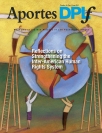n June 2011, the Member States of the Organization of American States (OAS), gathered at the General Assembly in San Salvador, decided to form a Special Working Group to Reflect on the Workings of the Inter-American Commission on Human Rights with a view to Strengthening the Inter-American Human Rights System. The Working Group was charged with preparing a set of recommendations to be submitted to the Permanent Council of the OAS by the end of the year. While this is not the first time that the states had promoted an initiative to examine the inter-American system, it was the first time that such an initiative had been taken in such a strained atmosphere. One key factor was Brazil’s overreaction to the precautionary measures granted by the Inter-American Commission on Human Rights (IACHR) to indigenous communities in the Río Xingu Basin in Pará and the Commission’s request that the Brazilian state suspend construction of the Belo Monte dam. Another was the OAS Secretary General’s public statement that the precautionary measures issued by the IACHR were not compulsory. These unprecedented occurrences and the subsequent creation of the Working Group marked the start of a series of public and private discussions that culminated in the Working Group’s final report and recommendations for the IACHR and for states, which were submitted to the Permanent Council in December 2011 and approved in January 2012.
This issue of Aportes frames this process in a broader context: the need to strengthen the inter-American human rights system and adapt it to the new realities and new challenges facing the hemisphere. While any institution is subject to improvement, it is widely recognized in the Americas and beyond that the inter-American system in general, and the IACHR in particular, has played a crucial role in protecting human rights and democracy in the region, especially in the darkest moments of the past several decades. Does its work sometimes make certain states uncomfortable? Definitely, and that is precisely the point: to reveal areas of weaknesses in the defense and protection of human rights in the hemisphere and show us the avenues for tackling and overcoming those shortcomings. The day that OAS Member States are completely pleased with the work of the IACHR and have nothing to say about it is the day we will start to worry.
The contributors to this journal approach the reflection on the strengthening of the inter-American system from several different perspectives. The issue begins with an article that outlines the Working Group’s reflection process over the past year, followed by a several articles on general and specific topics that should guide reflections on the system’s workings in order to genuinely strengthen it. Subsequent articles explore some of the specific issues raised in the course of the reflection, including precautionary measures, the IACHR’s role in promoting human rights, Chapter IV of its annual report, and its budget. Other articles comment on the role and perspectives of civil society in this process.
Although the final report of the Working Group was completed and approved this year, the reflection process is far from over. Much work lies ahead to genuinely strengthen the inter-American human rights system, and its many stakeholders have a role to play in this process. We hope that this publication contributes to the debate. As always, we look forward to your comments.






